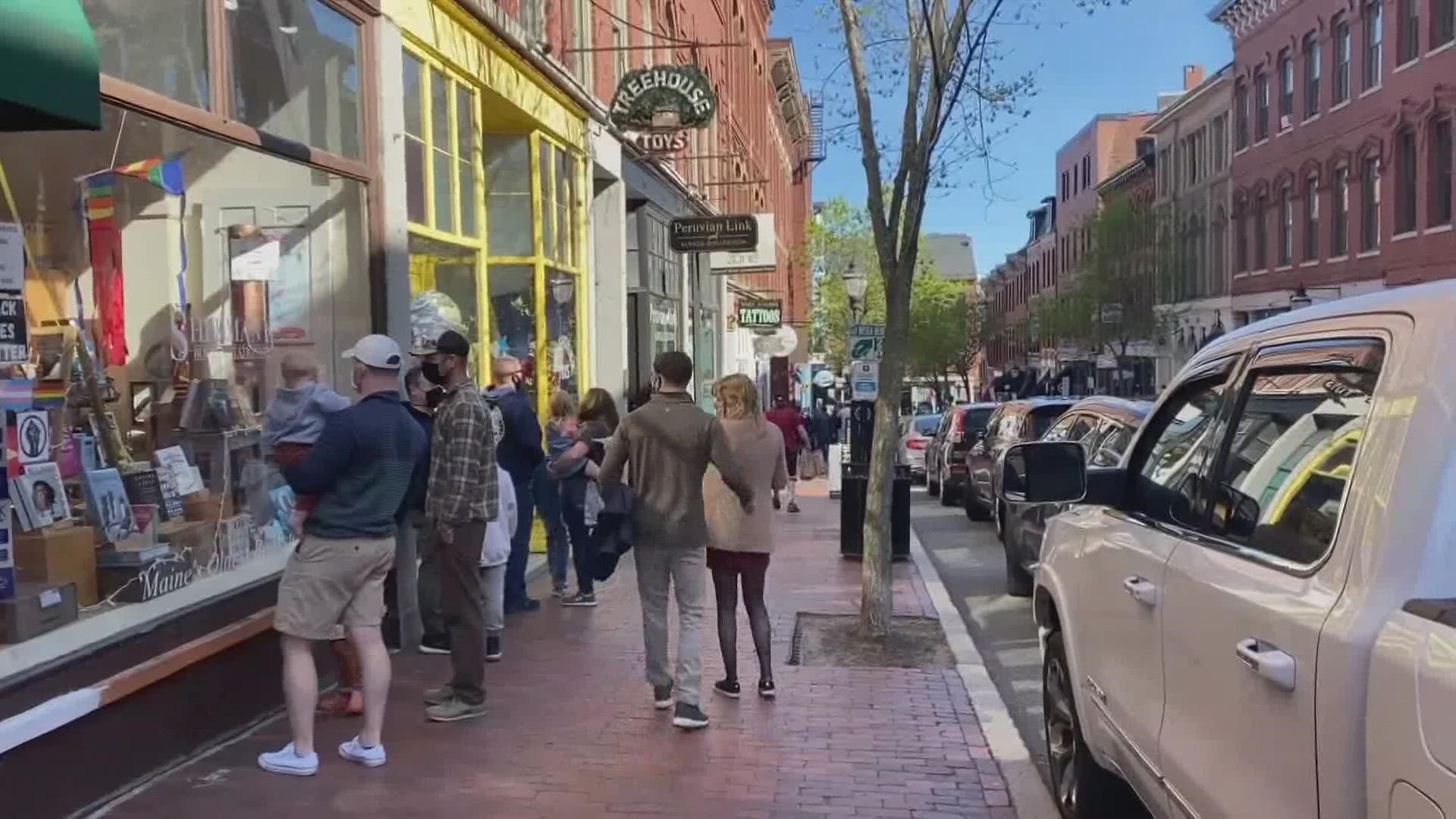PORTLAND, Maine — Having worked as a commercial real estate broker in Maine for decades, Greg Boulos has a simple way of sizing up how businesses are faring in the heart of Portland.
“It’s still relatively easy to find a parking space downtown,” he said. “That’s how you kind of judge how good the economy is. When you can’t find a parking space, you know business is booming.”
Two years after the start of the pandemic, downtown Portland is still noticeably subdued, largely because so many people who once came to offices five days a week now work from home. The city isn’t humming the way it was before COVID-19. Parking spaces are not hard to find. But as Boulos surveyed the scene, he was fairly upbeat.
“Greater Portland in particular and Maine in general are doing much better than many other places in the United States,” he said.
In Portland, according to the Boulos Company, the vacancy rate for Class A office space was at 5 percent at the end of 2021. In downtown Bangor, it’s just over 6 percent. In far bigger cities in other parts of the U.S., that number might be coming in at about 18 percent.
Those figures don’t tell the whole story, though.
“There’s a lot of space that’s vacant but leased,” Boulos said.
Businesses are still paying the rent for those offices, even as their employees stay away and work from home.
As the leases expire, office tenants will face some interesting decisions that will affect the economy of just about every urban downtown.
“Are they going to renew?” Boulos asked. “Are they going to downsize? That’s still the big question that we have hanging out here.”

